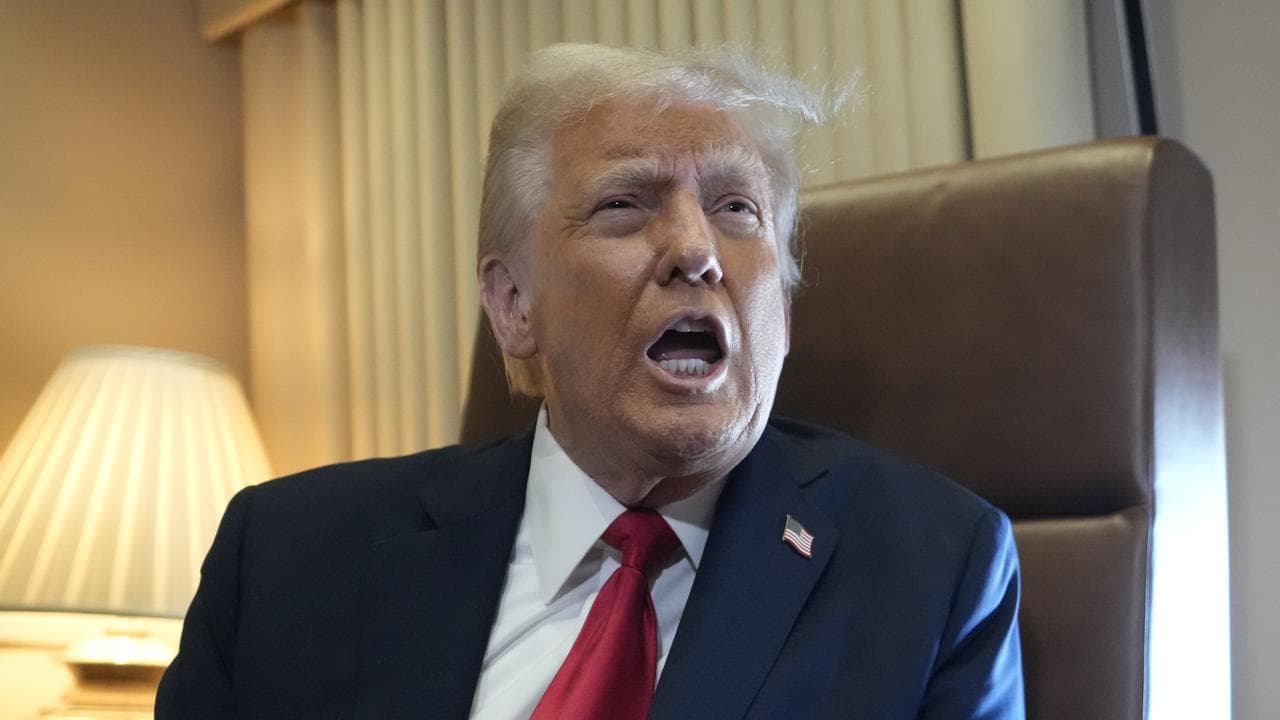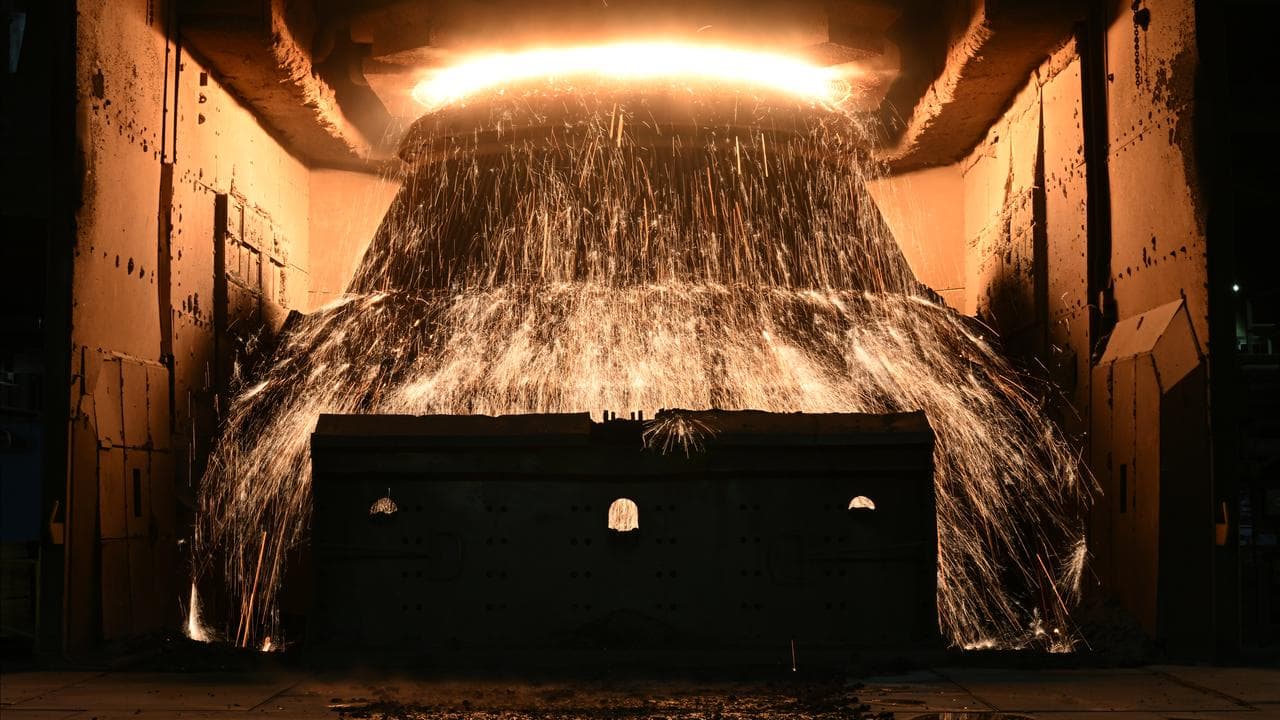
Donald Trump says he will introduce new 25 per cent tariffs on all steel and aluminium imports into the US, on top of existing metals duties, in another major escalation of his trade policy overhaul.
The president, speaking to reporters on Air Force One, said he would announce the new metals tariffs on Monday (Tuesday AEDT).
He also said he would announce reciprocal tariffs on Tuesday or Wednesday, to take effect almost immediately, applying them to all countries and matching the tariff rates levied by each country.

"And very simply, it's, if they charge us, we charge them," Trump said of the reciprocal tariff plan.
It's not yet clear how and if Australia, which exports around $US300 million ($A479 million) worth of steel and a similar amount of aluminium to the US a year, will be affected.
The Australian government has recently argued that the nation has a trade deficit with the US, and that should be taken into consideration.
During the first Trump presidency, Australia was given an exemption from such tariffs based on that argument but if tariffs are imposed, the flow-on effect for its producers could be challenging.
The largest sources of US steel imports are Canada, Brazil and Mexico, followed by South Korea and Vietnam, according to government and American Iron and Steel Institute data.
By a large margin, hydropower-rich Canada is the largest supplier of primary aluminium metal to the US, accounting for 79 per cent of total imports in the first 11 months of 2024.
"Canadian steel and aluminium support key industries in the US from defence, shipbuilding and auto," Canadian Innovation Minister Francois-Philippe Champagne posted on X.
"We will continue to stand up for Canada, our workers, and our industries."
Trump also said that while the US government would allow Japan's Nippon Steel to invest in US Steel, it would not allow this to become a majority stake.
"Tariffs are going to make it very successful again, and I think it has good management," Trump said of US Steel.
Trump during his first term imposed tariffs of 25 per cent on steel and 10 per cent on aluminium, but later granted several trading partners duty-free exemptions.
Former president Joe Biden later negotiated duty-free quota arrangements with Britain, the European Union and Japan. It was not immediately clear from Trump's announcement what will happen to those exemptions and quota arrangements.
In response, the European Union said it "sees no justification" for imposing US tariffs on steel and aluminium exports from the bloc.
"We will not respond to broad announcements without details or written clarification," , a statement from the European Commission said.
"We will react to protect the interests of European businesses, workers and consumers from unjustified measures."
So far the commission has not officially been notified of any additional tariffs on EU exports.
The commission statement stressed "the imposition of tariffs would be unlawful and economically counterproductive."
"Tariffs are essentially taxes. By imposing tariffs, the US would be taxing its own citizens, raising costs for business, and fuelling inflation. Moreover, tariffs heighten economic uncertainty and disrupt the efficiency and integration of global markets."




